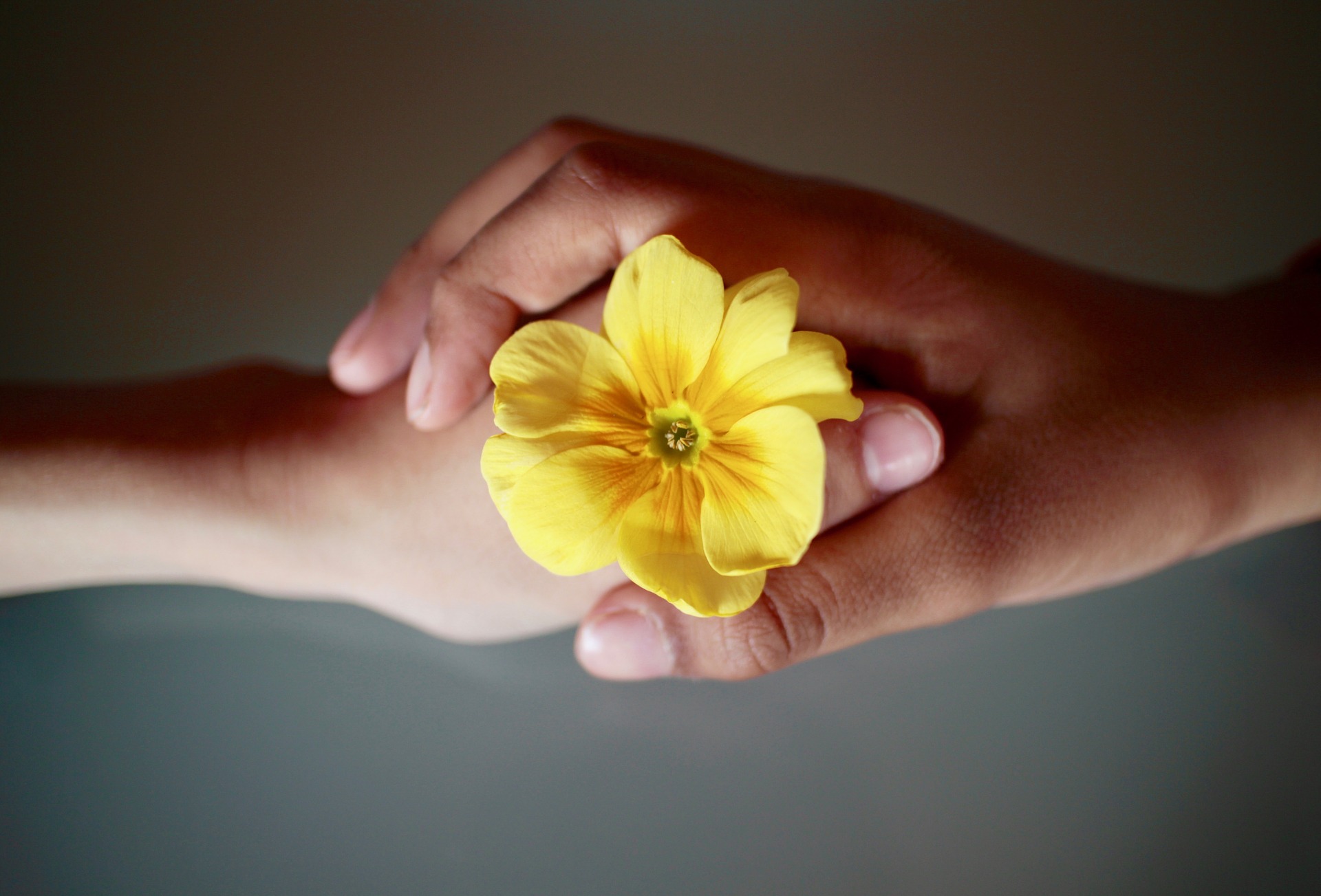10 Habits That Make People Use You

Imagine, one time, during your semester break, your friends invited you to a huge annual shopping exposition in a banquet hall in one hotel. From your previous experience going to the exposition, you find that the place was too crowded for your liking, and you wouldn’t want to experience the shoving and pushing while waiting to enter the hall again. If you were younger, as a people-pleaser, you would find it hard to say “No” to the invitation. However, as you are already classified as an adult, you know better that it’s okay to prioritize yourself and say “No”. Letting people dictate your decision would only be detrimental to your emotional well-being. For a better understanding, let’s delve deeper into the 10 habits that make people use you , shall we…?
1. Needless Self-sacrifice

Have you ever felt that you put an emphasis on other people’s needs before your own? You seem to favour peace and avoid confrontation… Are you a compassionate and self-sacrificing person, who is more than willing to put yourself in harm’s way for others? (University of Saskatchewan,2020)
However, in order to avoid the emotional burnout from the needless self-sacrifice, you must be brave to communicate and tell people about the behaviours that you don’t tolerate. You must also be honest and specific about your needs. Saying “I just need some space,” is not enough. Remember, the term “space” can mean different things for your partner…it can conjure up anything from a solitary trip to the beach to a full-on breakup (Braithwaite, 2020).
2. A Lack of Self Respect

It was a long day at work and you are in a subway. A man came to sit beside you, he nodded his head off, apparently trying to be portraying like he was sleepy and suddenly he put his head onto your shoulder. Would your mind try to rationalize it and say that “Maybe he is sleepy, so it’s okay…” and you were actually conflicted either to voice about it or not to the stranger?
You should not put up excuses for rude people. If someone behaves in a way that oversteps your boundary, you must be assertive and state your point (Dowling, 2016).
3. Seeking Approval from Others

Have you ever made a statement below:
“I will be happy when… (*insert anything you would like to happen*)
It is a huge misperception if you define happiness based on external circumstances or when your partner approves of you. You believe that your self-worth is based on what a person perceives about you; a condition known as emotional dependence. However, in order to find a sense of peace within ourselves and our relationships, then it is undeniably important to shift from emotional dependence into emotional independence. Emotional independence is the ability to regulate your emotions and still feel good about yourself even when difficult situations arise. It is also the practice of being able to regulate your emotions without seeking constant approval, attention, and validation from another person (Mancao, 2020).
4. Thinking That the Problem is Only Yourself

Sometimes, if any devastating events occur in your life, you would shift the blame internally, the “What if…” always bombards your mind. According to Sugiura and Fisak (2019), researchers sent out an online questionnaire to university students in the U.S. to understand their attitudes about personal responsibility and how much they thought about it, in addition to assessing their behaviour patterns. Inflated responsibility, according to the researchers, involves a sense of personal blame for negative outcomes, feeling responsible for preventing or avoiding danger or harm, and the embedded responsibility to continue thinking about a problem. This behaviour might actually cause a person to take advantage of you.
How to actually stop being so hard on yourself and house so much self-blame, and not feeling responsible for everything…? One way is to be more acceptive of who you are as a person. Self-acceptance means holding space for yourself and to be self-aware of your inflated sense of responsibility and innate “need” to control things. James Brown, a vedic meditation teacher, recommends meditation as another way to develop more self-acceptance: “We live in our heads and not in the world, and this is why we suffer. So how can we choose differently? First by getting out of our heads, i.e., by knowing ourselves as something other than our thoughts and feelings. One of the great gifts of meditation is that it allows us, twice a day, to know the truth of our essential nature: that beyond our thoughts, our ego, our doubts, and our frustrations, we are perfect, whole, and complete. We allow our mind to settle to quieter and calmer layers of consciousness, perhaps having an experience of that baseline level of transcendental consciousness at which there are no problems, no speculation, no thinking at all. Just pure, unbounded, blissful silence. And having had that experience, we re-enter the world of thinking and doing with a bit more perspective, a bit more of an ability to accept the situation, any situation, for what it is: temporary” (Berbari, 2019).
5. Showing Off

As human beings, we have the tendency to show off our positive traits, skills and abilities. This is a normal adaptive behaviour that relies on different cognitive biases. However, when you are flaunting your victories in order to demand for respect can lead to a dependent relationship. When you are trying your hardest to make others respect you by emphasizing your traits, this might appear as stand-offish and arrogant, and you will end up getting rejected(Mancao, 2020)
You can actually show you are worth something only by believing in yourself and your self-worth. As stated by Paul (2020), we must find our intrinsic worth. We can lose our externals (ie money, car, home, fame, success, looks, athletic abilities), but we never lose our intrinsic qualities and values (kindness, caring, generosity, honesty, reliability). When you know your value, you don’t need to prove it to anyone.
6. A Fear of Rejection

Have you ever thought that you are not lovable, smart or attractive enough for your partner to stay interested in you? Therefore, you need to be in control to get them to stay with you. Or…have you ever thought that there is no way for you to be yourself and be in a committed relationship? Therefore, you choose to withdraw to protect yourself from losing yourself.
All of those stated above are the underlying false beliefs that might fuel the fears of rejection and engulfment. Acting out with any form of controlling behaviour resulting from these beliefs will inevitably erode love. Also…be assertive, stand with your ground and say “no”. Help others only when you want to (Paul, 2020).
7. Being Deaf to your Interest and Needs

According to a Licensed Marriage and Family Therapist, Weena Cullins (2020), trust, open and honest communication, and conflict resolution are the perfect blend of healthy marriages. This can also be applied in other types of relationships as well (friendship, parent-child relationship or even professional settings).
In a relationship, a person might exhibit passive-aggressive behaviour, which means that you avoid direct confrontation by using less direct forms of communication to express negative emotions. Indirectly hurting a partner or refusing to meet their needs are forms of passive-aggressive behaviour, along with pouting, procrastinating, making backhanded comments, using silence when a response is warranted, and other behaviours that convey negative feelings without directly stating them (Cullins, 2020).
Try to listen to your desires, don’t be afraid to stand up for yourself and let the other party know about their passive-aggressive behaviour. Don’t be afraid to offend others and know that our fears don’t have a basis in reality, it’s always possible to find a compromise (Cullins, 2020).
8. You don’t Limit What is Acceptable

You might be the type of person who chooses to forgive others and let the things go instead of standing up for yourself. You don’t limit what is acceptable for you, and when the other people show disrespect towards you, you find an excuse for them in your mind.
The key to a healthy relationship is to set your boundaries and the tolerable limit. Setting boundaries is not about causing harm, however, it comes from a space of fairness and compassion. When we see the boundary has made the other person sad, disappointed, or even angry, we can approach that with empathy rather than guilting or shaming ourselves (Earnshaw, 2020).
9. A Fear of Loneliness

Loneliness might be hard to define given the perceptive difference according to different people and cultures. Collins online dictionary states that loneliness: ‘is the unhappiness that is felt by someone because they do not have any friends or do not have anyone to talk to. Affected with, characterised by, or causing a depressing feeling of being alone; lonesome. Destitute of sympathetic or friendly companionship, intercourse, support. The state of being alone, solitary, without company’.
Out of fear of loneliness, you turn your relationship into a cult and sacrifice yourself.
‘Loneliness is a subjective experience. If a person thinks and says that they are lonely, then they are lonely.’
According to an online journal about loneliness and mental health published in British Journal of Mental Health Nursing (2018), there is a clear distinction between feeling lonely and experiencing solitude (for example, being a loner or through personal choice). In particular, one way of thinking about loneliness is as a discrepancy between one’s necessary and achieved levels of social interaction (Peplau and Perlman, 1982), while solitude is simply the lack of contact with people. Loneliness is therefore a subjective experience. If a person thinks and says that they are lonely, then they are lonely.
You don’t need to be afraid of being in solitude. Think of being alone as being free rather than lonely – only then, you won’t be alone for long.
10. You Believe that Love Needs to be Earned

Do you think love has to be earned? Have you ever felt that in your relationship, you are trying very hard to win the person over? You try your hardest to prove that it was their love that you deserved, as if their love would prove your self-worth.
Well, the obvious answer to that first question would be : No,love is not to be earned, it should be unconditional, should be given freely, without expectations or guilt (Lakhi, 2019).
The right love will meet you halfway, teaching you everything that you’ve ever had to give has always been enough, it’s just you have always given your best to the wrong people.
REFERENCES
Barber, C. (2018, November 10). Loneliness and mental health. Retrieved March 20, 2021, from https://www.magonlinelibrary.com/doi/full/10.12968/bjmh.2018.7.5.209
Braithwaite, P. (2020, September 01). 6 tips for politely telling your partner you need alone time. Retrieved March 19, 2021, from https://www.self.com/story/alone-time
Dowling, D. (2020, March 09). 12 ways to show Yourself respect (and teach others to do the same). Retrieved March 19, 2021, from https://www.mindbodygreen.com/0-20165/12-ways-to-show-yourself-respect-and-teach-others-to-do-the-same.html
Berbari, G. (2019, August 27). Tend to be hard on yourself? Here’s a medical reason to chill. Retrieved March 19, 2021, from https://www.mindbodygreen.com/articles/science-shows-this-unhealthy-thought-pattern-can-lead-to-anxiety-and-mental-illness#
Cullins, W. (2020, September 20). 4 forms of passive-aggressive behavior in a marriage + how to change it. Retrieved March 19, 2021, from https://www.mindbodygreen.com/articles/passive-aggressive-spouse
Earnshaw, E. (2020, January 02). I’m a Therapist & here are 6 things people get wrong about boundaries. Retrieved March 19, 2021, from https://www.mindbodygreen.com/articles/common-mistakes-people-make-when-setting-boundaries
Lakhi, P. Myths debunked: Love must be earned? We think not. Retrieved March 23, 2021, from https://www.linkedin.com/pulse/myths-debunked-love-must-earned-we-think-priya-lakhi-jd/
Loneliness definition and meaning: Collins English Dictionary. (n.d.). Retrieved March 20, 2021, from https://www.collinsdictionary.com/dictionary/english/loneliness
Mancao, A. (2020, April 23). What does it mean to be Emotionally Independent? A Therapist explains. Retrieved March 19, 2021, from https://www.mindbodygreen.com/articles/how-to-be-emotionally-independent
Paul, M. (2020, May 24). Feeling lost without your job? Here’s how to find yourself again. Retrieved March 19, 2021, from https://www.mindbodygreen.com/articles/how-to-define-your-self-worth-when-you-dont-have-job#
Peplau LA, Perlman D. Perspectives on loneliness. In: Peplau LA, Perlman D, editors. Loneliness: A sourcebook of current theory, research and therapy. New York: Wiley; 1982. pp. 1–8. [Google Scholar]
Sugiura, Y. & Fisak, B. (2019, April 01). Inflated Responsibility in Worry and Obsessive Thinking. Retrieved March 19, 2021, from https://link.springer.com/article/10.1007/s41811-019-00041-x
U. (2020). Myers-Briggs Type Indicator INFJ. Retrieved March 19, 2021, from https://students.usask.ca/documents/secc/INFJ.pdf



Responses